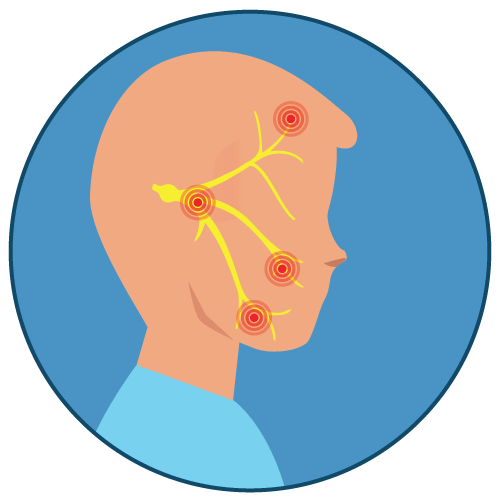| Name | Trigeminal Neuralgia |

Trigeminal Neuralgia
Trigeminal Neuralgia (TN) is a type of facial pain that affects the trigeminal nerve, one of the largest nerves in the face that supplies sensation to the jaw, cheek, and lip. The pain is typically sudden and severe and is often triggered by routine activities such as eating, speaking, or brushing your teeth.
The exact cause of trigeminal neuralgia is unknown, however, it is thought to be related to nerve compression or irritation, caused by blood vessels or tumors near the nerve. Other factors that can contribute to TN include multiple sclerosis, stroke, and nerve damage from facial surgery or injury.
Diagnosis of trigeminal neuralgia typically involves a physical exam, medical history, and imaging tests such as an MRI or CT scan. Treatment depends on the severity and frequency of the pain and may involve medications, nerve blocks, or in severe cases, surgery.
It is important to seek medical attention if you experience symptoms of trigeminal neuralgia, as early diagnosis and treatment can help prevent potential complications and improve quality of life.
Note: This description is not intended to be used as a substitute for professional medical advice, diagnosis, or treatment. If you have any concerns about your health, please consult with a healthcare provider.
 Bangla
Bangla English
English